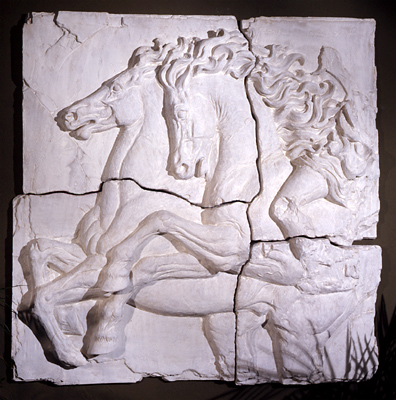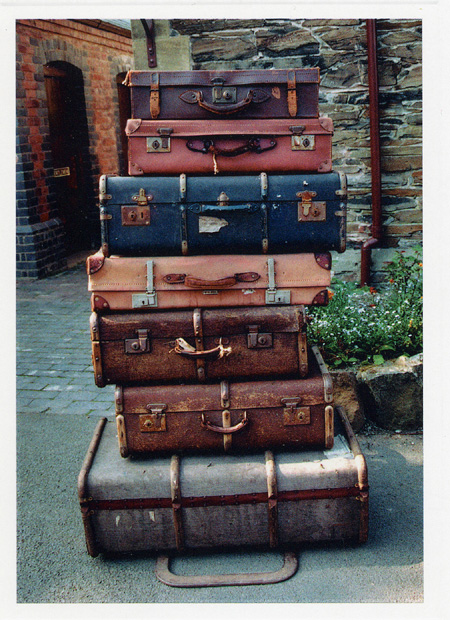
Check Your Bags at the Door
I was having a rotten day. I guess it was a typical Monday, but it seemed everything that could go wrong, did. The kids didn’t want out get out of bed to get ready for school, making us late. When I returned home, I had bookwork and bill paying to do, and in the process, noticed an error on an account. The subsequent phone call left the issue unresolved; I was informed a supervisor would be getting back to me. Wonderful. Somewhere between riding horses and lessons, I had this *interruption* to look forward to.
I walked to the barn, set my phone on the sill, and grabbed a halter, to go retrieve the first horse of the day. Grumbling all the way to the paddock, I paused when I got to the gate. “Hi Rain!” I hollered. She had already noticed me, and was approaching at a brisk walk, with ears forward and an expression on her face that said it all. It was the same look you’d get when you show a dog his favorite ball. “Play? Are we going to play now? Yay!” Her approach melted my worries and the fog in my head evaporated. The phone no longer existed. There was only Rain, and we were going to go play.
After our ride, I unsaddled her in the arena, and let her explore. Her first order of business is always to find a good place to roll. Her pesky winter coat is no longer needed, and every roll removes another layer. Next she’ll look around, to see who is nearby. Maybe it’s another horse on the fenceline, but sometimes it’s the goats who attract her attention. A sniff here, a sniff there, and then off to a green patch, to see if she can pluck a few blades of grass from under the bottom rail of the arena. She’ll wander, come back and check in with me when she passes by, and then I leave her to relax while I go clean her pen, before returning her to it.
Three more horses, each with their own quirks, habits, and preferences, come and go from the barn. I greet, halter, lead, tie, brush, saddle, ride, unsaddle, brush, treat, and release. Again, and again. Today Jasper wants his butt scratched. He sticks his nose in the air, curls his top lip and closes his eyes, as he is transported to his “happy place” while I work the curry comb. Okauchee scans my body for cookies. A former owner must have made a habit of packing treats (I do not, usually). He’s polite, not pushy, but his nose quivers as he examines my hands, my hair, my pockets. He’s sure I’m hiding them somewhere! Ojo is the quiet one. He doesn’t have too much to say usually, and doesn’t make any requests. He’s not looking for treats, or offering his butt to be scratched, but just settles into the cross ties, and scans the room with big eyes. I like to whisper in his ear, scratch his head, and tell him he’s going to be ok. He believes me, his eyelids droop, and we begin the lesson. Time passes unnoticed, and the phone is forgotten. All that exists are the horses before me. Each wants—needs-- to engage in a conversation with me, and while we are together, they have my full attention.
By afternoon, still no callback, and as I set out for the afternoon lessons, the sky opened up, and the downpour began. Wind gusts picked up, and I tried to cheer myself with the fact that the afternoon lessons would be indoors…..at least we don’t have to stand out it the rain and wind, right? As I'm wrapping up with a horse in the barn, two little girls come running for their hugs and riding lessons. The older one tells me about school that day, and what she had for lunch. The little one lives in the moment; we don’t talk about what has happened during her day, we talk about what’s happening right now. “I picked 7!” she exclaims, which is her way of telling me she's up first. Number 7 was the winning number, meaning she would receive the first ride/lesson, and boy, is she happy when she wins.
The next hour I’m lost in conversation, floating between hearing about school, horses, and occasionally sneaking in an instruction or two. Giving riding lessons to children is challenging. They seldom want to stay on one subject for very long. Like a green horse, we drift in and out of what they want to talk about, and what I want them to learn. Some days are more productive than others. If they enjoy the horse and their lessons, and are happy to see me next time they come, I figure I’m doing my job. Souring them on riding is not an option, so, we go at their pace, keep the work enjoyable, and I hope the instruction is sinking in in an organic way.
I walked to the barn, set my phone on the sill, and grabbed a halter, to go retrieve the first horse of the day. Grumbling all the way to the paddock, I paused when I got to the gate. “Hi Rain!” I hollered. She had already noticed me, and was approaching at a brisk walk, with ears forward and an expression on her face that said it all. It was the same look you’d get when you show a dog his favorite ball. “Play? Are we going to play now? Yay!” Her approach melted my worries and the fog in my head evaporated. The phone no longer existed. There was only Rain, and we were going to go play.
After our ride, I unsaddled her in the arena, and let her explore. Her first order of business is always to find a good place to roll. Her pesky winter coat is no longer needed, and every roll removes another layer. Next she’ll look around, to see who is nearby. Maybe it’s another horse on the fenceline, but sometimes it’s the goats who attract her attention. A sniff here, a sniff there, and then off to a green patch, to see if she can pluck a few blades of grass from under the bottom rail of the arena. She’ll wander, come back and check in with me when she passes by, and then I leave her to relax while I go clean her pen, before returning her to it.
Three more horses, each with their own quirks, habits, and preferences, come and go from the barn. I greet, halter, lead, tie, brush, saddle, ride, unsaddle, brush, treat, and release. Again, and again. Today Jasper wants his butt scratched. He sticks his nose in the air, curls his top lip and closes his eyes, as he is transported to his “happy place” while I work the curry comb. Okauchee scans my body for cookies. A former owner must have made a habit of packing treats (I do not, usually). He’s polite, not pushy, but his nose quivers as he examines my hands, my hair, my pockets. He’s sure I’m hiding them somewhere! Ojo is the quiet one. He doesn’t have too much to say usually, and doesn’t make any requests. He’s not looking for treats, or offering his butt to be scratched, but just settles into the cross ties, and scans the room with big eyes. I like to whisper in his ear, scratch his head, and tell him he’s going to be ok. He believes me, his eyelids droop, and we begin the lesson. Time passes unnoticed, and the phone is forgotten. All that exists are the horses before me. Each wants—needs-- to engage in a conversation with me, and while we are together, they have my full attention.
By afternoon, still no callback, and as I set out for the afternoon lessons, the sky opened up, and the downpour began. Wind gusts picked up, and I tried to cheer myself with the fact that the afternoon lessons would be indoors…..at least we don’t have to stand out it the rain and wind, right? As I'm wrapping up with a horse in the barn, two little girls come running for their hugs and riding lessons. The older one tells me about school that day, and what she had for lunch. The little one lives in the moment; we don’t talk about what has happened during her day, we talk about what’s happening right now. “I picked 7!” she exclaims, which is her way of telling me she's up first. Number 7 was the winning number, meaning she would receive the first ride/lesson, and boy, is she happy when she wins.
The next hour I’m lost in conversation, floating between hearing about school, horses, and occasionally sneaking in an instruction or two. Giving riding lessons to children is challenging. They seldom want to stay on one subject for very long. Like a green horse, we drift in and out of what they want to talk about, and what I want them to learn. Some days are more productive than others. If they enjoy the horse and their lessons, and are happy to see me next time they come, I figure I’m doing my job. Souring them on riding is not an option, so, we go at their pace, keep the work enjoyable, and I hope the instruction is sinking in in an organic way.

"Whenever the trainer finds himself in a situation where he has difficulties in controlling his own will, where he wants to become too strong and force the horse to give him the result he is looking for, he must convince himself that the means are against the purpose." Adam Ehrengranat
Anger comes to mind, when one reads this quote. But anger is not always what needs to be tempered when we work with horses, or people. Self-control encompasses so much more than just anger management. When I watch people work with horses, the most common area I see people struggle with is maintaining their focus on the horse. They might be talking to a friend, or on the phone, or so consumed
Anger comes to mind, when one reads this quote. But anger is not always what needs to be tempered when we work with horses, or people. Self-control encompasses so much more than just anger management. When I watch people work with horses, the most common area I see people struggle with is maintaining their focus on the horse. They might be talking to a friend, or on the phone, or so consumed
with the day’s affairs, they neglect to be present. Horse lives in the present. Our children live in the present. We need to be present with them, if we hope to have a meaningful exchange. We need to check our mental and emotional baggage at the barn door, when we request to spend time with a horse. Staying present and focused is not as easy as it sounds, yet without it, we miss opportunities. When we choose to give our attention fully and completely to the one before us, we tell them they have value, they are important to us, and we are listening to what they are saying. This is absolutely NOT easy to do, however the educated equestrian understands it’s a skill worth developing. When we stay in the moment, and pay attention to what is presented to us, we’ll be able to identify opportunities when they appear, and make good use of them. This is the essence of the art of horsemanship.
4.6.12 TME
Return to
Educated Equestrian
Return to
Educated Equestrian